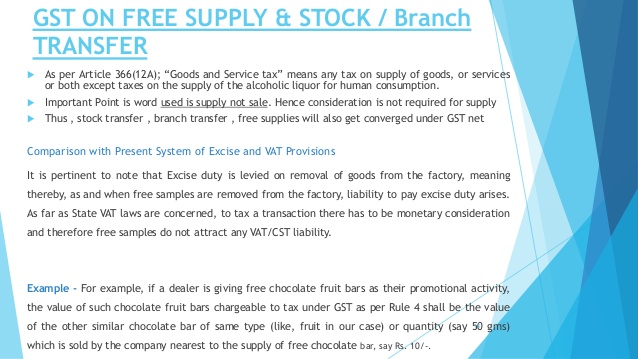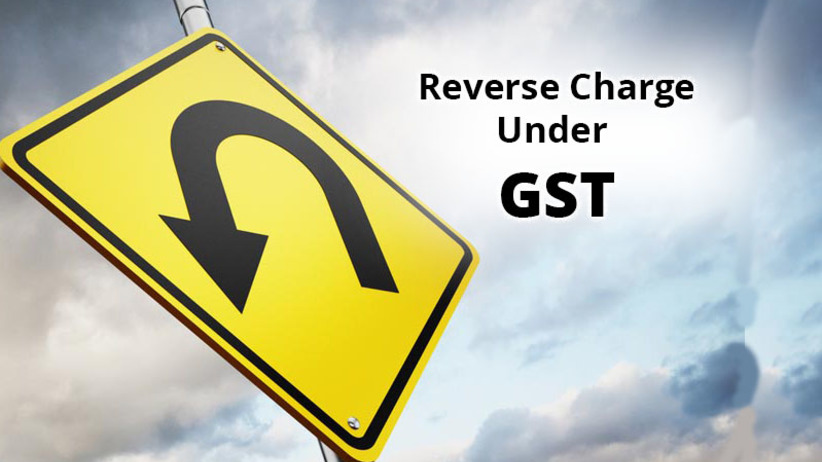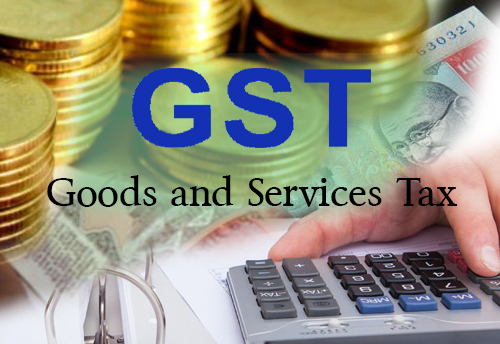An assessee can adjust the excess service tax paid amount to future liability or can also claim refund
It has been recently held in the case of the Commissioner CCE & ST, Hyderabad vs. State Bank of Hyderabad – 2016 (6) TMI 675 that an assessee can opt to adjust the excess service tax paid amount to future liability or can also claim refund of the amount paid in excess.
It was also held that if the assessee adjusted the excess amount suo-motto, without informing department and in violation of Rules 6(4A) and 6(4B) of Service Tax Rules, 1994, the assessee has short paid service tax to that extent.
Self-Adjustment or Refund of Excess Service Tax:
Where an assessee makes excess payment of service tax, in some cases he may adjust the excess payment against his future liability and in some cases if the privilege cannot be availed, he will have to claim refund for the excess amount.
1. Cases where self-adjustment of excess service tax payment is allowed:
As the provisions relating to self adjustment of service tax have changed with the lapse of time, however the following will make it clear:
After the introduction of the Point of Taxation Rules, 2011, changes have also been made in the Service Tax Rules, 1994, to harmonise both the rules.
The Point of Taxation Rules provide for payment on accrual basis, there is a chance that while the tax is paid on the invoice amount, the total value received for the service later on is less than that. To harmonize the above requirement of discharge of service tax, the Service Tax Rules, 1994, provide that Service tax payment with reference to the time when the services are considered to have been provided. The time of such provision of service should be determined with reference to the Point of Taxation Rules.
The details of self-adjustment have to be informed to the Superintendent of Central Excise within fifteen days from the date of adjustment.
Under the above provisions, this facility of adjustment of excess payment of service tax has been provided to all assesses with a range of Rs. 2, 00,000 (Rs 1, 00,000 before 1-4-2011 and Rs. 50,000 before 1-3-2008).
This facility of excess adjustment having centralized registration, assessees paying service tax under provisional assessment and assessees paying tax in advance can also avail the facility without any monetary limit provided the similar conditions are applicable under the old provisions.
2. Cases where refund of service tax can be claimed:
The above provision of self-adjustment applies only in selected situations and is subject to some conditions.
If the assessee cannot make self-adjustment of his excess payment for any reason, he can claim refund of service tax under Section 11B and 11BB of the Central Excise Act, 1944, which are applied to the service tax provisions through Section 83 of the Finance Act, 1994.
Sections 11B as well as 11BB of the Central Excise Act are followed when the assessee wishes to claim refund of excess tax paid.
Situations under which Refund can be claimed –
Under the following circumstances an assessee can file claim for refund of service tax:
(i)Upon finalization of provisional assessment:
When an assessee follows provisional assessment i.e. he deposits service tax on provisional basis as he could failed to assess his tax liability correctly, a refund often becomes due to him on finalization of such assessment. This situation occurs when the assessee deposits the excess of provisional tax.
(ii) Upon making excess payment of service tax:
When an assessee makes excess payment of service tax, he can claim refund, if his situation does not require self-adjustment of excess tax so paid. Such situation arose when the Finance Act, 2003 increased the rate of service tax from 5% to 8% and made the new rate applicable from 14-5-2003 for all services, and from 1-7-2003 for newly introduced services or part of the existing services that have been newly extended and some service providers charged according to the new rate for all the services from 14-5-2003.
(iii) Upon rectification of mistake:
If there is a rectification of mistake under Section 74(6) of the Act, resulting in decreasing the liability of the assessee or increasing the refund amount that becomes due, the assessee shall be entitled to claim refund.
(iv) Upon payment of service tax on advance towards the service that is not provided later:
When payment is received in advance in connection with some services to be provided later on, but the services are not actually provided, then tax paid is liable to be refunded to the assessee.
(v) Upon payment of service tax under Section 73A:
Where any amount has been paid under Section 73A of the Act, the person who has borne the such tax, may claim refund within six months of the public notice issued by the Central Excise Officer in connection with the same.
Application for claiming Refund:
The assessee has to file his claim for refund in Form R6 prescribed under Rule 173S of the old Central Excise Rules, 1944 to the Assistant Commissioner or the Deputy Commissioner of Central Excise.
The application form should be submitted in duplicate after signing by the claimant. The original copy of the Form should be receipted.
It should be noted that an application for refund is considered only if all the required documents are enclosed before the jurisdictional authority for making refund order.
Enclosures to be annexed with Form R:
For the purpose of evidence, the claimant should enclose with the application all the documents that will help in establishing his claim.


 Sales Tax For E-Commerce: 3 Things Small Businesses Should Know
Sales Tax For E-Commerce: 3 Things Small Businesses Should Know  What Is The GST Liability on Free Supply of Goods and Services?
What Is The GST Liability on Free Supply of Goods and Services?  Some FAQs about GST- Understanding Scope and Provisions of GST
Some FAQs about GST- Understanding Scope and Provisions of GST  Understanding the Reverse Charge mechanism under GST and IGST?
Understanding the Reverse Charge mechanism under GST and IGST?  Pros and Cons of GST- Is Ushering in of GST worth Celebrating as media wants us to believe?
Pros and Cons of GST- Is Ushering in of GST worth Celebrating as media wants us to believe?  Arrests and Detention Provisions under GST in Detail- Are these justified
Arrests and Detention Provisions under GST in Detail- Are these justified  ITAT Amritsar: No Section 269SS Violation for One-Time Cash Payment Before Sub-Registrar
ITAT Amritsar: No Section 269SS Violation for One-Time Cash Payment Before Sub-Registrar  Tax Officials Unleash Digital Dragnet: How New Raid Powers Redefine Privacy, Property Rights in India and likely to Fuel Corruption
Tax Officials Unleash Digital Dragnet: How New Raid Powers Redefine Privacy, Property Rights in India and likely to Fuel Corruption  Income Tax Department Rewards for Reporting Tax Evasion: A Comprehensive Guide
Income Tax Department Rewards for Reporting Tax Evasion: A Comprehensive Guide  Forfeiture of Gratuity by Employer- What are the Remedies for an employee- Can employer be challenged?
Forfeiture of Gratuity by Employer- What are the Remedies for an employee- Can employer be challenged?